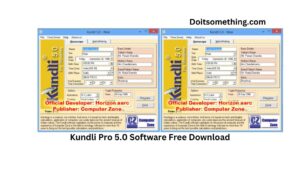JEE Advanced 2023 Registration: How to Apply

JEE Advanced Registration Process
JEE Advanced Registration Process
Did you know about Jee Advanced Registration 2023, if yes then this article is for you. We will be discussing Jee Advanced Registration 2023. Read on for more.
The registration process for JEE Advanced usually begins in May every year. Here are the general steps to register for the exam:

- Visit the official JEE Advanced website (jeeadv.ac.in).
- Click on the registration link and enter your JEE Main roll number and password to log in.
- Fill in the required personal and academic details in the registration form.
- Upload scanned copies of your photograph, signature, and other necessary documents.
- Pay the registration fee through online mode (debit/credit card, net banking, or UPI).
Jee advanced registration application fees
The application fee for JEE Advanced varies depending on the category of the candidate and the examination center chosen by the candidate. Here are the fee details for JEE Advanced 2023:

Indian Nationals (including PIO/OCI)
- Female candidates: Rs. 1400/-
- SC/ST/PwD candidates: Rs. 1400/-
- All other candidates: Rs. 2800/-
Foreign Nationals
- Candidates from SAARC countries: USD 75
- Candidates from Non-SAARC countries: USD 150
The payment of application fees can be made through online mode (debit card/credit card/net banking/UPI) or offline mode (SBI Challan).
The payment of fees is mandatory for the completion of the registration process. Candidates are advised to check the official website for the latest information on application fees as it may change from year to year.
Documents required for registration
Candidates are required to upload certain documents during the registration process for JEE Advanced. Here is a list of the documents that candidates need to keep ready:
- JEE Main Admit Card: Candidates must have a valid JEE Main Admit Card to register for JEE Advanced.
- Photo ID Proof: Candidates are required to upload a scanned copy of their photo identity proof (Aadhaar card, passport, voter ID, etc.).
- Date of Birth Proof: Candidates must upload a scanned copy of their date of birth proof (10th standard certificate or birth certificate).
- Category Certificate (if applicable): Candidates belonging to SC/ST/OBC-NCL/PwD category must upload a scanned copy of their category certificate.
- Certificate for Persons with Disabilities (if applicable): Candidates with physical disabilities are required to upload a scanned copy of their disability certificate.
- Scribe Request Letter (if applicable): Candidates who must the services of a scribe must upload a scanned copy of their scribe request letter.
- PwD Certificate (if applicable): Candidates who must facilities such as a wheelchair or a scribe due to their physical disability must upload a scanned copy of their PwD certificate.It’s important to ensure that the documents are scanned properly and meet the specified requirements before uploading them during the registration process.
Jee advanced registration Important dates
The important dates for JEE Advanced registration generally vary from year to year. Here are the tentative dates for JEE Advanced 2022 registration:
- JEE Main 2022 Exam Dates: February 2022, March 2022, April 2022
- JEE Main 2022 Results: May 2022
- JEE Advanced 2022 Registration: May 2022
- JEE Advanced 2022 Admit Card: To be announced
- JEE Advanced 2022 Exam Date: To be announced
- JEE Advanced 2022 Result: To be announced.
Please note that these dates are subject to change and may be revised by the exam conducting authorities.
Jee advanced registration Admit card.
The admit card for JEE Advanced is a mandatory document that candidates must carry to the examination center on the day of the exam. Here are the steps to download the JEE Advanced Admit Card:

- Visit the official JEE Advanced website (jeeadv.ac.in).
- Click on the admit card download link.
- Enter your JEE Advanced registration number, date of birth, mobile number, and email address.
- Click on the “Submit” button.
- Your JEE Advanced Admit Card will be displayed on the screen.
- Download and take a printout of the admit card.
It’s important to verify all the details mentioned on the admit card, including your name, roll number, photograph, signature, examination center, and exam timings.
If you find any discrepancies, you must immediately contact the JEE Advanced authorities and get them rectified. Candidates are advised to carry a valid photo ID proof along with the admit card to the examination center on the day of the exam.
Exam centers
The exam centers for JEE Advanced are located across various cities in India and abroad. Candidates can choose the exam center while filling in their registration form. The list of exam centers is usually released along with the official notification for the exam.
Here are some of the cities where the JEE Advanced exam centers are located in India:
- Ahmedabad
- Bangalore
- Bhopal
- Chennai
- Delhi
- Guwahati
- Hyderabad
- Jaipur
- Kolkata
- Lucknow
- Mumbai
- Patna
- Pune
- Varanasi
- Vishakhapatnam
Additionally, there are also exam centers available in foreign countries such as Dubai, Singapore, Dhaka, and Kathmandu. Candidates can select the exam center that is most convenient for them.
Exam pattern
JEE Advanced consists of two papers – Paper 1 and Paper 2. Both papers are mandatory and are conducted on the same day.
The exam pattern for JEE Advanced is designed to test a candidate’s understanding and aptitude in the subjects of Physics, Chemistry, and Mathematics. Here are the key features of the JEE Advanced exam pattern:

- Duration: Each paper has a duration of 3 hours.
- Language: The question paper is available in English and Hindi languages.
- Sections: Each paper is divided into three sections – Physics, Chemistry, and Mathematics.
- Types of Questions: The question paper consists of objective-type questions (many choice questions) and numerical-based questions.
- Marking Scheme: Each question carries different marks, and there is a negative marking for incorrect answers.
- Mode of Exam: The exam is conducted in a computer-based mode.
- Total Marks: The total marks for JEE Advanced is 372 (Paper 1 – 186 marks, Paper 2 – 186 marks).
- Syllabus: The syllabus for JEE Advanced is based on the topics covered in JEE Main, but the level of difficulty is much higher.
The JEE Advanced exam pattern may change from year to year, so it’s important for candidates to check the official website for the latest updates and notifications about the exam pattern.
Syllabus
The syllabus for JEE Advanced is designed to test a candidate’s understanding and aptitude in the subjects of Physics, Chemistry, and Mathematics.
The syllabus is based on the topics covered in JEE Main, but the level of difficulty is much higher. Here is a general overview of the JEE Advanced syllabus:
Physics:
- General physics
- Mechanics
- Thermal physics
- Electricity and magnetism
- Optics
- Modern physics
- Chemistry:
- Physical Chemistry
- Inorganic Chemistry
- Organic Chemistry
- Mathematics:
- Algebra
- Trigonometry
- Analytical geometry
- Differential calculus
- Integral calculus
- Vectors
It’s important to note that the JEE Advanced syllabus may vary from year to year, and candidates should check the official JEE Advanced website for the latest updates and notifications abuot the syllabus.
Result and rank list in chart
I’m sorry, but as an AI language model, I cannot create visual charts or images. But, I can provide you with information about the JEE Advanced result and rank list.
After the JEE Advanced exam is conducted, the exam conducting authority releases the result and rank list.

The result is generally declared in the form of scorecards, which contain the candidate’s marks, rank, and other relevant details. Here are some important points to keep in mind about the JEE Advanced result and rank list:
- Calculation of Score: The final score is calculated based on the candidate’s performance in both Paper 1 and Paper 2.
- Qualifying Criteria: Candidates must meet the qualifying criteria to be eligible for the rank list. The qualifying criteria include least marks in each subject and an omit total score.
- Rank List: The rank list is prepared based on the candidate’s scores in JEE Advanced. The rank list is used for admission to various undergraduate engineering programs offered by the Indian Institutes of Technology (IITs).
- Tie-Breaking Criteria: In case of a tie, the exam conducting authority follows specific tie-breaking criteria, which include the total marks, marks in Mathematics, marks in Physics, and age of the candidate.
Candidates can access their JEE Advanced result and rank list by logging into the official website using their registration number and date of birth.
Counselling and seat allotment
After the JEE Advanced 2023 Registration result and rank list are declared, the counseling and seat allotment process is conducted by the Joint Seat Allocation Authority (JoSAA). Here’s a general overview of the counseling and seat allotment process:
- Online Registration: Candidates who qualify in JEE Advanced need to register online for the counseling process. The registration process involves filling in personal and academic details and choice filling of preferred engineering programs and institutes.
- Choice Filling and Locking: After registration, candidates need to fill in their preferred engineering programs and institutes. It’s important to note that candidates can change their choice of engineering programs and institutes until the final locking of choices.
- Seat Allotment: Based on the candidate’s rank, preferred choices, and availability of seats, the JoSAA conducts the seat allotment process. Candidates who are allotted seats need to pay the acceptance fee to confirm their seat.
- Reporting to Institutes: After the seat allotment, candidates need to report to the allotted institute to complete the admission process. Candidates need to carry their original documents for verification and pay the admission fee.
- Second and Third Rounds of Seat Allotment: If seats remain vacant after the first round of seat allotment, the JoSAA conducts next rounds of seat allotment.
It’s important to note that the counseling and seat allotment process may vary from year to year, and candidates should check the official JoSAA website for the latest updates and notifications about the process.
Also read about NTA JEE Mains Result .
Frequently Asked Questions
A: JEE stands for Joint Entrance Examination, which is a national-level entrance exam conducted in India for admission to undergraduate engineering and architecture programs in various institutes across the country.
A: The JEE is conducted by the National Testing Agency (NTA) on behalf of the Ministry of Education, Government of India.
A: There are two exams conducted under JEE – JEE Main and JEE Advanced. JEE Main is conducted for admission to undergraduate engineering programs in National Institutes of Technology (NITs), Indian Institutes of Information Technology (IIITs), and other Centrally Funded Technical Institutions (CFTIs), while JEE Advanced is conducted for admission to the Indian Institutes of Technology (IITs).
Conclusion
JEE Advanced 2023 Registration
Submit the registration form and take a printout of the confirmation page for future reference.It’s important to note that only candidates who qualify in JEE Main are eligible to register for JEE Advanced.
Additionally, there are certain eligibility criteria and requirements that candidates must fulfill before registering for the exam.Make sure to read the official
We hope that this article has helped you to know about Jee Advanced Registration 2023. If you have any questions, kindly let us know in the comments section.





